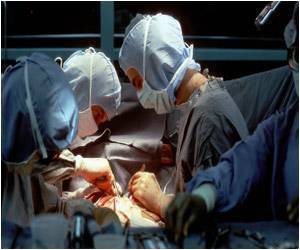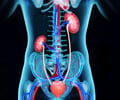High rates of untreated kidney failure seen in elderly, reveals report published in JAMA.

Brenda R. Hemmelgarn, M.D., Ph.D., of the University of Calgary, Alberta, Canada, and colleagues conducted a study to determine whether age is associated with the likelihood of treated kidney failure (renal replacement therapy: receipt of long-term dialysis or kidney transplantation), untreated kidney failure, and all-cause mortality. The study included 1,816,824 adults in Alberta, Canada, who had outpatient eGFR measured between May 2002 and March 2008, with a baseline eGFR of 15 mL/min/1.73 m2 or higher and who did not require renal replacement therapy at the beginning of the study. The primary outcome measures for the study were adjusted rates of treated kidney failure, untreated kidney failure (progression to eGFR <15 mL/min/1.73 m2 without renal replacement therapy), and death.
During a median (midpoint) follow-up of 4.4 years, 97,451 (5.4 percent) of study participants died, 3,295 (0.18 percent) developed treated kidney failure, and 3,116 (0.17 percent) developed untreated kidney failure. The researchers found that within each eGFR stratum, adjusted rates of death increased with increasing age. Also, within each eGFR stratum, rates of treated kidney failure were consistently higher among the youngest age group. "For example, in the lowest eGFR stratum (15-29 mL/min/1.73 m2), adjusted rates of treated kidney failure were more than 10-fold higher among the youngest (18-44 years) compared with the oldest (85 years or older) groups," the authors write.
The opposite results were evident for untreated kidney failure. The risk of untreated kidney failure increased with lower vs. higher eGFR categories, and this association was stronger with increasing age. "For the lowest eGFR stratum (15-29 mL/min/1.73 m2), adjusted rates of untreated kidney failure were more than 5-fold higher among the oldest age stratum (85 years or older) compared with the youngest age stratum (18-44 years)."
Rates of kidney failure overall (treated and untreated combined) demonstrated less variation across age groups.
The researchers write that their results suggest that the incidence of advanced kidney disease in the elderly may be substantially underestimated by rates of treated kidney failure alone.
Advertisement
Source-Newswise















